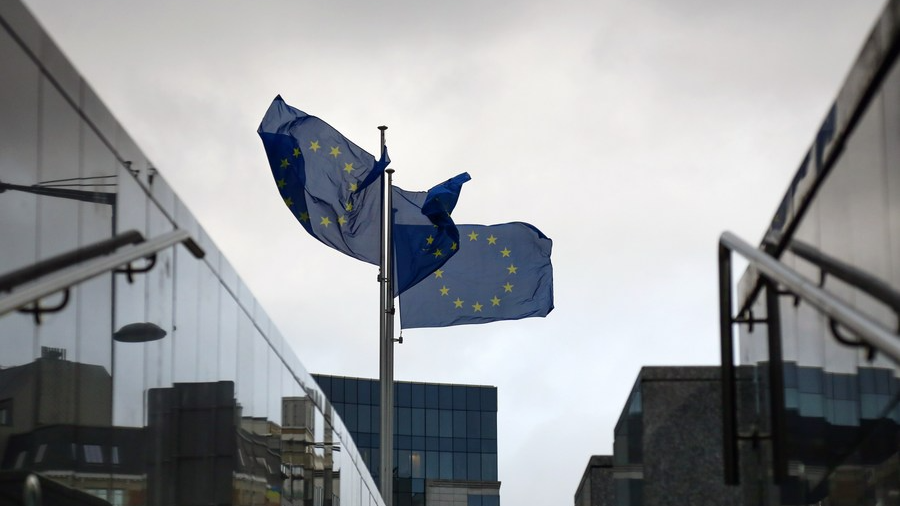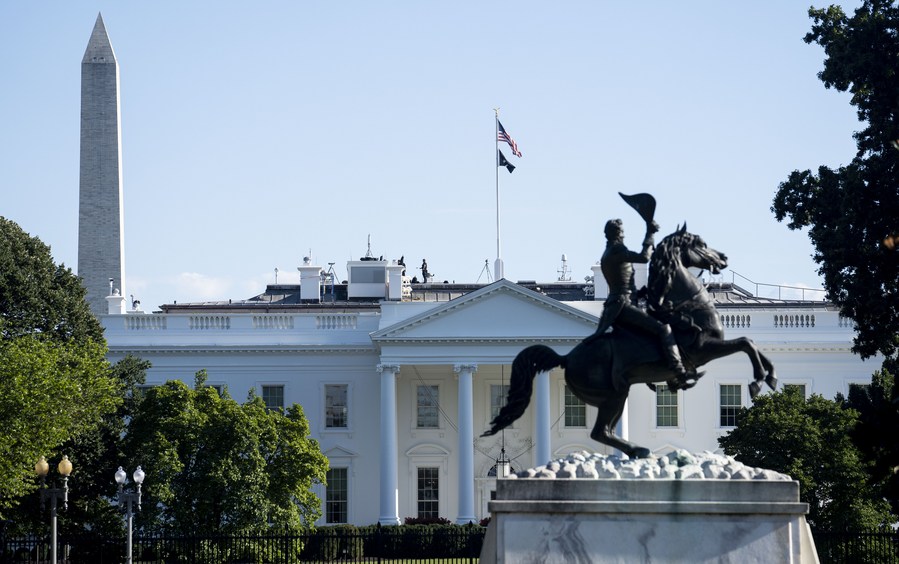
EU flags are seen outside the European Commission in Brussels, Belgium, January 6, 2023. /Xinhua
EU flags are seen outside the European Commission in Brussels, Belgium, January 6, 2023. /Xinhua
Editor's note: Jonathan Arnott is a former member of the European Parliament. The article reflects the author's opinions and not necessarily the views of CGTN.
Economic protectionism is not a good idea. Countries, which place trade barriers with the rest of the world, discover that their own exporters are affected just as much as those countries and regions they import from. Drawing a graph of U.S. imports and exports since the 18th century and you'll notice a remarkable correlation: The two go hand in hand, the lines looking almost identical to each other.
There are many reasons for this, but the end result is the same. Countries cannot introduce protectionist measures without getting hurt in return. That's why the Joe Biden administration's so-called Inflation Reduction Act was bad news for America and to a lesser extent bad news for the rest of the world. Drawing on a long tradition of American laws, it's unclear whether a protectionist public spending package would reduce inflation. If there weren't already some downward pressures on inflation, which could cool it down in 2023, inflation might have surged much higher. The title bears little resemblance to the actual effect; as the Penn Wharton Budget Model points out, the expected impact on inflation "is statistically indistinguishable from zero."
The real impact of America's "Inflation Reduction Act" is hefty tax increases, mostly on businesses and the wealthy. It's a risky strategy: Raise taxes too high and that would encourage wealthy people to emigrate to a low-tax regime and take their money with them. The Biden administration needs to tread carefully here.
Meanwhile, the United States is taking aim at China, particularly when it comes to the supply of batteries for electric vehicles. Mixed messages are getting sent: The Inflation Act subsidizes more measures to combat climate change while undercutting its approach through economic policy.
But the European Union is concerned as well: The United States is offering tax credits to American businesses, provided that production takes place within the country. The big question is whether the European Union will respond in kind. Two wrongs don't make a right, and a fire should not be fought with another fire. Accordingly, fighting protectionism with protectionism does not work. It's still unclear which way the European Union will jump. Although the draft conclusions for this week's EU leaders' summit suggest that the European Union would fall into the protectionist trap, it's clear that some nations – such as Germany – have significant doubts. The meeting may struggle to result in concrete proposals.

The White House in Washington, D.C., the day when U.S. President Joe Biden signed into law the Inflation Reduction Act, August 16, 2022. /Xinhua
The White House in Washington, D.C., the day when U.S. President Joe Biden signed into law the Inflation Reduction Act, August 16, 2022. /Xinhua
Apparently the European Union is over-worrying. First, it already endures significant tariffs on the import of electric vehicles. Secondly, electric vehicles are heavier than most vehicles (the batteries add to the weight) and transport costs are already high. Third, the costs to American companies of meeting the local production requirements will eat up a large portion of the subsidies. The European Union will be only slightly disadvantaged and should not respond aggressively.
China, on the other hand, seems to be the real target. It's hard to say whether the motivation is economic or political. Economically, the United States has a massive trade deficit with China. China is a manufacturing nation, aiming to build its economy through consumption and exports. Politically, the United States is concerned about two issues. The country is worried about China's growing global influence and shifting political landscape, thanks in part to the Belt and Road Initiative. Yet, China could do little to alleviate America's concerns: Building the economy and "soft power" is the aim of any country and China would not engage in acts of self-sabotage.
The other problem is that on almost every key issue, the United States and China are on different sides, since the U.S. views China as a competitor and even a threat.
The West's attitude towards China have hardened since the start of the pandemic. Mistrust has grown and international relations is not a zero-sum game. Poor relations between the West and China will help neither side. There's a danger of a downward spiral in relations, where each action by one causes a slightly bigger reaction by the other. The pattern is destructive and someone needs to take the lead in breaking it.
The real question is whether it's possible for China to take the lead and act to break that cycle, because it 's clear that with a presidential election approaching, the U.S. will not unilaterally change course. Politics, though, is the art of the possible. That truism, first attributed to Otto von Bismarck, the first chancellor of the German Empire, was repeated by U.S. President Joe Biden just after taking office. Politics is all about negotiation and compromise – and increased protectionism will do nobody any good. The biggest question is, what is possible in the current atmosphere?
(If you want to contribute and have specific expertise, please contact us at opinions@cgtn.com. Follow @thouse_opinions on Twitter to discover the latest commentaries in the CGTN Opinion Section.)